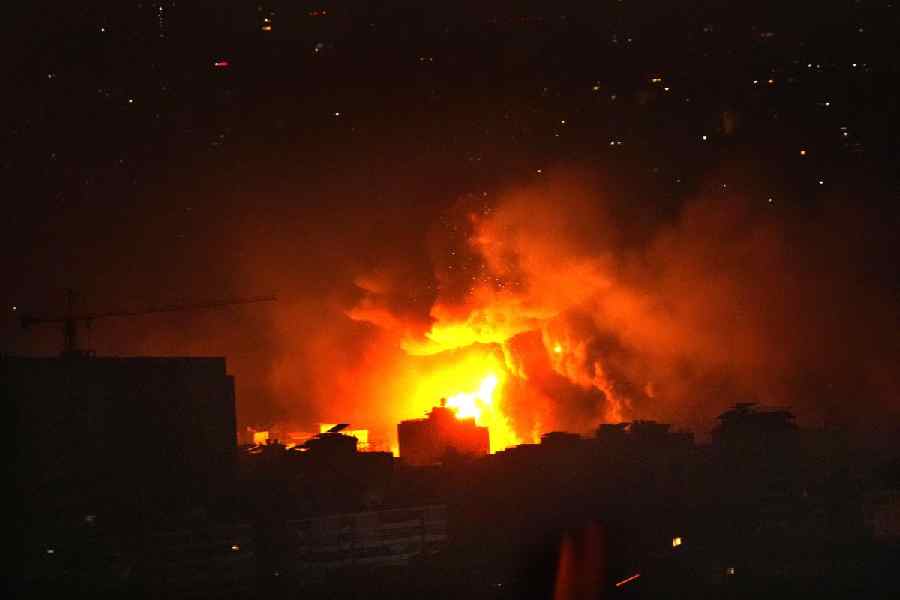Israel’s last war with Hezbollah, in 2006, was considered a failure within much of the Israeli security establishment.
Its air force had a thin list of targets. Israeli ground soldiers struggled during fighting in southern Lebanon’s rugged terrain. And the war failed to accomplish its stated goals of returning two captive Israeli soldiers and removing Hezbollah from the border region.
“There was a certain degree of trauma from the results of the war,” said Carmit Valensi, an Israeli expert on Hezbollah who served in the military’s intelligence directorate.
Nearly 20 years later, Israel has mounted another assault against Hezbollah in Lebanon. This time, a string of successes — attacks that have killed Hezbollah’s leaders, crippled its communication networks and targeted its weapons caches — were a direct result of Israel’s investments in preparing for a future battle with Hezbollah after that foundering performance in 2006, Israeli security experts said.
But as Israeli forces push deeper into Lebanon by land, they will be vulnerable to greater risks, including sophisticated weapons used by Hezbollah. And if the Israeli government fails to develop a clear exit strategy, as it has struggled to do in Gaza, the military could end up fighting a protracted war that stretches its resources to the limit.
Delivering blow after blow to Hezbollah has helped restore Israel’s reputation as a powerful force in the West Asia, but it also has underscored how the country was more ready for war with Hezbollah on its northern border than it was for an incursion by Hamas, which spearheaded the October 7 attacks in the south.
“Hezbollah is 10 times more powerful than Hamas,” said Yaakov Amidror, a retired major general who served as Israel’s national security adviser from 2011 to 2013. “But the IDF was 20 times more prepared for Hezbollah than it was for Hamas,” he said, referring to the Israeli military.
Hezbollah was also more ready for a war with Israel than last time, having built an arsenal estimated to contain more than 1,00,000 rockets and missiles and trained tens of thousands of fighters. And its leaders carefully studied Israel, calculating that Hezbollah could trade back-and-forth attacks with Israel in support of Hamas without setting off an all-out war.
The current Israeli onslaught against Hezbollah showed that was a major miscalculation. Israel escalated its attacks in mid-September, commencing weeks of bombings against Hezbollah and targeting its militants by blowing up their walkie-talkies and pagers. The exploding devices killed or severely wounded both militants and civilians.
Days later, Israel killed several top Hezbollah commanders, including Ibrahim Aqeel, a leader of the Radwan force — elite fighters who Israeli officials had concluded were planning to invade northern Israel.
On September 27, Israel struck an underground compound, killing Hassan Nasrallah, the longtime leader of Hezbollah who turned the group into a powerful political and military force. And on Thursday, Israeli officials said they tried to kill his possible successor, Hashem Safieddine, but as of Sunday, it was not clear if they had succeeded.
General Amidror said a key element of Israel’s intelligence superiority over Hezbollah was its increased deployment of drones that hover in the skies over Lebanon.
Still, celebrations in Israel of its recent successes may be premature. The Israeli forces’ ground invasion into Lebanon, only a few days old, has already exacted a price. On Wednesday, Hezbollah fighters killed nine Israeli soldiers during some of the first fights between the sides since the invasion began. Two more soldiers were killed on Friday in the Israeli-controlled Golan Heights, the military said.
“The ground invasion will be much more difficult,” General Amidror said. “We’re talking about an organsation that is more dangerous, prepared and armed than Hamas. It’s in another league.”
New York Times News Service

